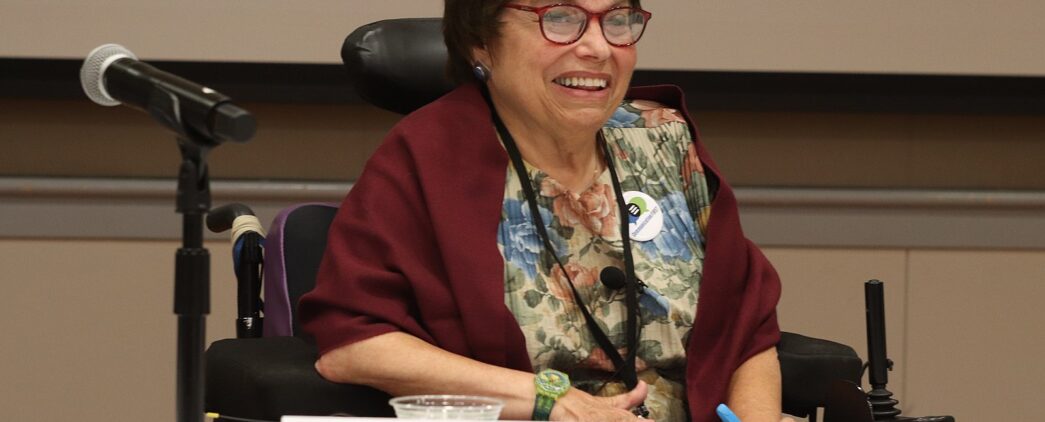Remembering Judith Heumann, Disability Rights Activist
Honoring a legacy

We’re moved by the impact of disability rights activist Judith Heumann, a Philadelphia native who recently passed away. Her legacy lives on in everyone who’s working to make the world more accessible.
As the “mother of the disability rights” movement, Heumann worked her entire life to advance the role of disabled people in society. “Access as a human right” was at the core of her work. She was a clear example of the impact a committed accessibility champion can have on the world.
Here is how her legacy applies to our work today.
Education is key to advancing access
Heumann contracted polio at the age of 2, and used a wheelchair for the rest of her life. Her local public school didn’t want to admit her into kindergarten because she was a “fire hazard.” Access to education became an important fight throughout her life–from getting into kindergarten to receiving her teaching license. Education was essential to the impact she had on the world.
Her legacy reminds us of how important it is for everyone to have access to education, both in person and online. And it’s critical for all of us to keep learning about the best ways to improve accessibility, while increasing access to information digitally. That continual learning and support is core to who we are at Tamman.
Working collectively, works
In 1977, Heumann worked with organizers to make sure every American could access government services. She and other disabled activists staged a sit-in at a federal building in San Francisco. Their demand? Get the government to start enforcing Section 504. This new code would make sure that disabled people “had a remedy” if a government agency discriminated against them. The law had passed, but the government wasn’t enforcing it. Heumann’s sit-in worked because she collaborated with local churches, officials, and activist groups. The Black Panthers even became a key ally. After 26 days, Heumann and other organizers traveled to DC and met with officials to move the law forward. Collective action paid off.
At Tamman, we know our work today is only possible because of what Heumann accomplished. And while we’re not staging sit-ins, collective action is at the core of what we do. We know that building the inclusive web can’t be done alone. Collaborating with our clients and partners is the way we drive web accessibility forward.
Change within official systems is possible–and necessary
Heumann wasn’t just an outside agitator. She worked to advance the role of disabled people within government systems for much of her life. She served on senate committees and in two presidential administrations. She also worked with the World Bank and Human Rights Watch.
Working within official systems is essential for expanding access online. From passing laws to make the web more accessible, to staying on top of the latest international standards, official systems are how we scale change together. Agreed upon baselines like the Web Content Accessibility Guidelines (WCAG) provide a strong foundation, but interacting and challenging these systems are necessary for us to drive change and make meaningful progress.
By disabled people, for disabled people
Heumann was one of the first Americans to create spaces by and for disabled people. She led programming at a summer camp, for disabled young people, and led the first Center for Independent Living. She spoke in public about the fact that disability isn’t a problem—inaccessibility is the issue.
In web accessibility work, the same is true. Our goal at Tamman is to center the expertise of disabled people through our client projects, podcasts, resources, and partnerships. Only then will we be able to build a truly inclusive web.
Have fun while you’re changing the world
Making the physical and digital world more accessible is important work, and sometimes it can be tough. Heumann faced hard fights during her career, but she also made time for fun. She traveled all over the world, loved musicals and movies, and spent time with her community.
Heumann’s example reminds us to have fun while we’re working hard and keep our community close. We stay in touch with our coworkers and peers through daily Slack chats, monthly cultural activities like our team Oscars experience, and our annual retreats.
CTA: Want to learn more about Judith Heumann? See her in the Crip Camp documentary from Netflix and read her obituary in the New York Times. Finally, check out our book talk on Article 19 about her memoir, Being Heumann: An Unrepentant Memoir of a Disability Rights Activist.





